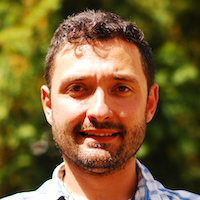Copula-based Autoencoders
Title: Copula-based Autoencoders
Research Area: Mathematical Foundations and Statistical Learning
In our project “Copula-based Autoencoders”, we challenge the normality assumption in statistical and machine learning, leveraging Sklar’s (1959) theorem to separate marginal distribution from the dependency function. In practice, selecting the proper dependency function remains a critical challenge despite a list of goodness-of-fit functions. Copula models, suffer from time-consuming estimation methodologies compared to Gaussian models, in particular for high dimensions, for example for factor copula models. Concurrently, we explore temporal dependency, an underexplored aspect in copula theory, which is vitally important for the real temporally and spatially dependent data. Furthermore, we seek to establish connections with modern deep learning theories, focusing on the integration of neural networks. The logic to be used lies in the link between autoencoders from machine learning and factor models in statistics.
Aims
In the project “Copula-Based Autoencoders”, we have three major aims:
- Provide estimation technique, that leverages various methods, as method of moments, maximum likelihood, via the suitability of the model to the data.
- Extend estimation to the temporally dependent data with the structural changes.
- Provide semi-parametric estimation technique for the factor copula model, where the link function is estimated non-parametrically.
Problem
Autoencoders are extremely powerful in extracting features for various tasks such as autonomous driving, driving factors in the financial market, etc. Theoretical properties are scarcely investigated. Linear autoencoders (factor models) are based on the assumptions of normality and are shown to be oversimplified. Copula-based factor models allow for nonlinearity and are shown to be very flexible. The theory for them is still in its infancy. Extending the link function in the factor models to the nonlinear form, I am pushing the whole field towards traditional autoencoders. This bridge allows for the development of needed theory, estimation, and further properties. Further extension into temporal dependency poses another challenge.
Technology
- Nonlinear dependency
- Nonlinear factor model (copula based autoencoder)
- Theory of ML
Outlook
Through the link of the factor models and auto-encoders, extension of the factor models (with feasible estimation, in particular temporal data) towards semi-parametric estimation we will provide novel copula-based statistically motivated auto-encoder for temporally dependent data.
Publications
- Okhrin, O., and Ristig, A., Penalized estimation of hierarchical Archimedean copula, Journal of Multivariate Analysis 2024, 105274, DOI: 10.1016/j.jmva.2023.105274
- Hautsch, N., Okhrin, O., and Ristig, A. Maximum-Likelihood Estimation Using the Zig-Zag Algorithm, Journal of Financial Econometrics, 2023, 1346-1375, DOI: 10.1093/jjfinec/nbac006
Team
Lead
- Prof. Dr. Ostap Okhrin



